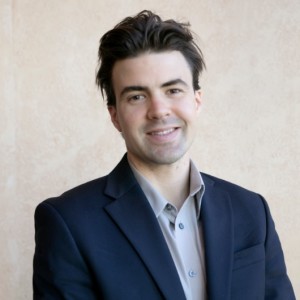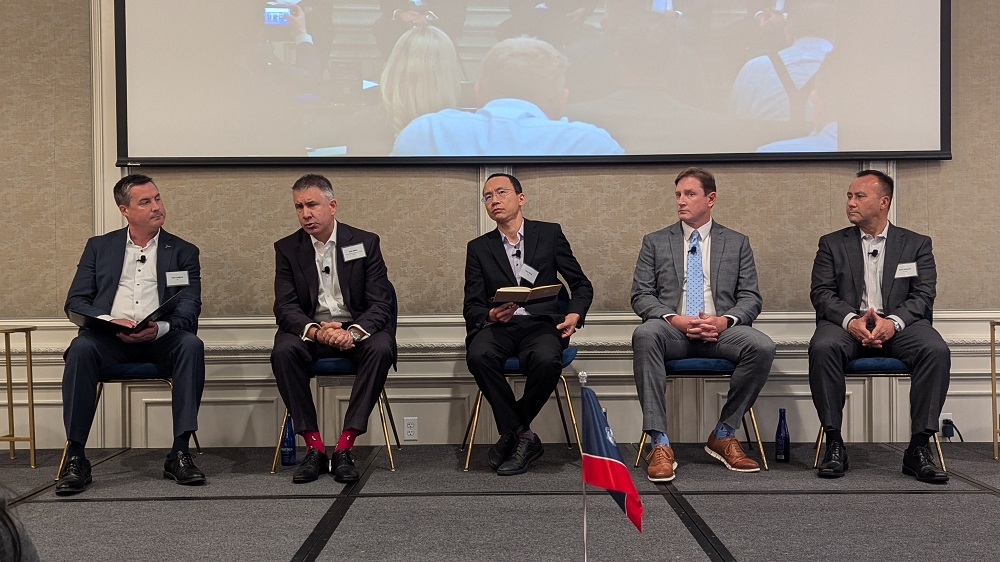In what has become a tradition on the day before the WorkBoat Show officially opens, ABS held the fifth version of the Offshore Wind Forum on Nov. 11. This commitment is connected to the role that ABS continues to play with advancing clean energy, bridging the gap between the ideal future and reality of today. Coming on the heels of the 2024 election, that reality was a central focus of the discussions.
Liz Burdock, president and CEO, Oceantic Network, formerly the Business Network for Offshore Wind, outlined trends and opportunities with the future of offshore wind energy. She called out the many advances and developments that have been made over the past 10 years as well as the shift to becoming Oceantic, allowing the organization to encompass other ocean renewables, including near and offshore solar, wave, tidal and more. Before highlighting the future, Burdock outlined how far things have come.
“It’s about thinking broader from the platform offshore wind that we’ve all created,” Burdock said. “We’ve achieved amazing things the last four years. We’re at 310 mw and rising. The global offshore wind industry is not slowing down and we think the work we’ve done over the past year can define the next 10.”
Burdock then showed a video that touted these developments.
Burdock highlighted how 2023 was the second-best year ever for offshore wind, while offshore solar is picking up in a big way. She mentioned that under a new Trump administration, it’s not going to be about copying Europe, but lessons can be applied and there are ways to improve.
“What it means is still up in the air, but we think the future under the Trump administration is going to be about a market realignment,” Burdock told the crowd. She also mentioned that floating offshore wind represents a national opportunity and will be necessary to meet state decarbonization goals. While President-elect Trump has vowed to end these projects on day one, few expect any rash decisions. Nonetheless, Burdock admitted lease sales could slow and the incoming administration could choose not to defend projects that are facing legal challenges.
During the “Riding the Waves — Considerations and Outlooks for Floating Offshore Wind” panel, considerations and outlooks for floating offshore were then discussed in detail, with panelists outlining advancements they thought could help move things forward in a cost effectivemanner. Technical challenges and regulation represent significant challenges, but floating windprogress depends on forward-thinking standards that can foster innovation.
“Standard help you scale up, and we want to scale up at a faster pace,” said Erik Milito, president, National Ocean Industries Association (NOIA).”
Other points of discussion focused on what it takes to build this infrastructure and the role of policy. Costs and delays represent the biggest challenges, and standardization is the best way to see these challenges addressed, which can help the industry as a whole.
The ‘Beyond Wind – Exploring the Horizons of Offshore Renewables, Vessels and Energy Storage” session brought together various experts to outline what it means to move forward with developments in these sectors. challenges, and opportunities in these rapidly evolving fields. Enabling dual-use technologies that go from tactical to practical were discussed, as well as what it means to solve the funding challenges that stand in the way of creating advanced energy storage systems.
“The only way we get there is with subsidies,” said Bo Jardine, CEO, Eureka Naval Craft. “So how do we work together and make compromises? That might mean things like smaller turbines, but those are the types of compromises that take us from concept to reality.
Wrapping things up, Lauren Lionberger, director, Global Offshore Sustainability at ABS, talked about policy challenges and how favorable and consistent regulation is needed to problem solve. She also mentioned the need to grow the market and how that might require subsidies.
“What does it mean to level the playing field and bring together lawmakers, owners and operators to develop solutions that makes sense?” she asked the crowd.
These are the questions that need to be answered to build sustainability throughout project lifecycles that will open up larger opportunities for individual stakeholders and the entire industry.




